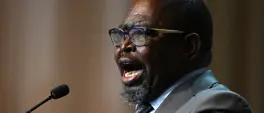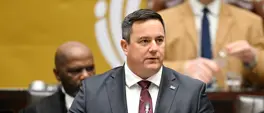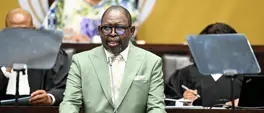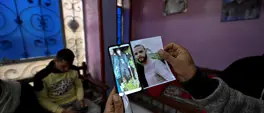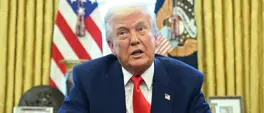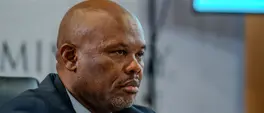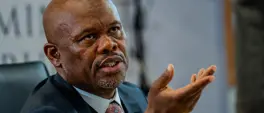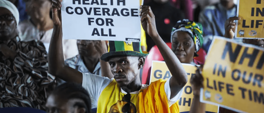CHARLES MATSEKE | Parallel probes raise questions over politics, power and truth
Charles Matseke
10 September 2025 | 10:15'The Madlanga Commission may provide facts, but only Parliament can compel action. Should both fail, South Africans must prepare for a sobering reality: in the republic of power, truth bends easily to the weight of class, ideology, and elite interest.'
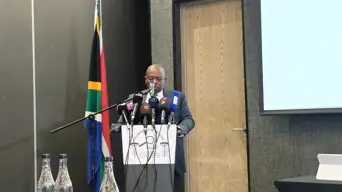
On 17 September 2025, the Madlanga Commission of Inquiry will open its first public hearings at the Brigitte Mabandla Justice College in Pretoria.
The Commission’s spokesperson, Jeremy Michaels, has confirmed that the venue and Information and Communication Technology (ICT) systems are secured. The first witness to take the stand will be Nhlanhla Mkwanazi, who will testify not only before the Madlanga Commission but also before Parliament’s ad hoc committee on justice.
At first glance, this may appear to be a healthy sign of institutional accountability. Yet the very fact that these processes run in parallel rather than sequentially, raises deeper questions. Why is Parliament unwilling to wait for the Commission’s findings before initiating its own process? Why risk duplication when the credibility of both institutions depends on thoroughness, not speed? The answer lies in politics: one process seeks facts, the other seeks narrative control.
Unlike the Commission, which is bound by procedural inquiry, Parliament’s ad hoc committee retains political discretion.
It is, at least in principle, the only body capable of demanding accountability in real time, pressing for truth and justice beyond the confines of legal procedure. This makes it potentially more powerful but also more vulnerable to capture.
South Africans must recall the Zuma era to appreciate this dynamic. Had such a scandal emerged under Jacob Zuma, we would have witnessed the swift mobilisation of civil society, NGOs such as OUTA, Corruption Watch, or the Helen Suzman Foundation positioning themselves as defenders of constitutionalism. Investigative journalists would have drawn their characteristic spider webs, linking shadowy deals to public officials, state-owned enterprises, and private-sector enablers.
The landscape has shifted. During Zuma’s presidency, right-wing or lobby groups and even economic publications, capitalised on the delegitimisation of his rule, often under the broad banner of “anti-corruption”. Yet their campaigns frequently aligned less with a genuine defence of public integrity and more with protecting corporate and minority elite interests.
Today, corruption is not less pervasive. Figures such as Katiso Molefe and Vusi Matlala, linked to high-profile politicians and state-owned enterprises, remain deeply embedded in the system. The data is not difficult to trace; what is lacking is the will or perhaps the civil society funding to do so.
ALSO READ:
- CHARLES MATSEKE | Police inquiry: The uniform is compromised and so is the response
- CHARLES MATSEKE | National Dialogue risks failing before it begins
Globally, developmental states have often tolerated a degree of corruption in exchange for rapid, visible progress, a so-called developmentalist bargain. In South Africa, no such bargain exists.
Corruption here is largely extractive, feeding eliteconsumption rather than broad-based development. As a result, it corrodes legitimacy without delivering compensatory growth or infrastructure.
This is why the stakes are so high. If Parliament’s ad hoc committee abdicates its role as the people’s voice, South Africans will be left to reconcile themselves to the normalisation of elite crime. Power, as history teaches, gravitates only toward itself. Without structural accountability, society will be forced into a grim tolerance, accepting that corruption is not an aberration but an elite privilege.
The question is not whether corruption will be exposed; it is whose corruption will be exposed, and to what political end. The Madlanga Commission may provide facts, but only Parliament can compel action. Should both fail, South Africans must prepare for a sobering reality: in the republic of power, truth bends easily to the weight of class, ideology, and elite interest.
In his book Power in Action: Democracy, Citizenship and Social Justice (2019), Professor Steven Friedmanoffers a sobering reminder that democratic institutions including oversight commissions often fail to secure genuine accountability when they are overshadowed by elite dominance.
His analysis is particularly instructive in the South African context, where commissions of inquiry have frequently produced voluminous records and public spectacle but little in the way of structural reform.
The Madlanga Commission must, therefore, be read against this backdrop: as both a potential instrument of justice and a site where elite interests may once again shape outcomes. Friedman’s work is a book worth revisiting at a moment when political machinery continues to manufacture “facts” and cultivate collective consent to a mediocracy.
Moreover, a system where the appearance of accountability masks its systematic absence. Unless this Commission disrupts that cycle, it risks becoming yet another performance of accountability, symbolic rather than substantive and history will judge it as an opportunity squandered.
Get the whole picture 💡
Take a look at the topic timeline for all related articles.
Trending News
More in Opinion
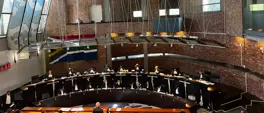
23 February 2026 11:45
CHRIS OXTOBY & JUDITH FEBRUARY | Is there a crisis of ethics in the South African judiciary?
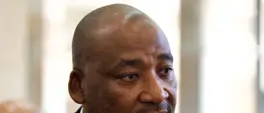
20 February 2026 14:45
JAMIL F. KHAN | Democratic institutions must be protected from rising religious fundamentalism
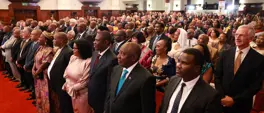
19 February 2026 05:15
CHARLES MATSEKE | From State of the Nation to Republic of Commissions: SA's playhouse of accountability
